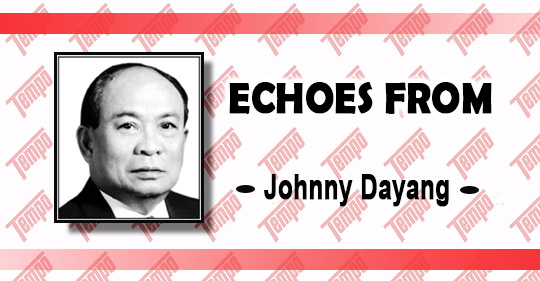BY JOHNNY DAYANG
THE country’s judicial system has always been deficient. Part of this can be blamed on some prosecutors who view application of justice as a matter of social status, often disregarding the moral and ethical aspects of appreciating cases.
Political detainee Reina Mae Nasino’s situation is a case in point. Separated from her daughter when the child was only a month old, she was not given the chance to attend to her sick baby, who died without her on the side. Albeit she was allowed a three-day furlough from jail to attend the interment of her daughter, the gesture was an admission our justice system is flawed.
When we look at how the affluent have been treated with royalty by some terrible prosecutors and judges, in desperation we spew curses and condemn those who interpret justice in favor of bias. In the case of the Marcoses, deposed from power over three decades ago, they remain free and have never been in jail for a day. After recovering billions of pesos, we have yet to hear the courts order law enforcement agencies to detain them.
With over R171 billion in ill-gotten wealth so far recovered, is the amount not enough to put them behind bars even if their cases are civil in nature? If a hungry shoplifter gets all the insults in the world for stealing food and spends prison time for being unable to pay the items he took, why are the Marcoses, who purloined public funds, are still free and even glorified?
Philippine laws have always been pro-rich. Even those who formulate laws, mostly scions of rich political clans, pass legislations that promote the welfare of the wealthy and powerful.
In other parts of the world, judges, with control over the life, limbs, and property, are chosen in elections, making them beholden to the public. In our case, magistrates are appointed by authorities who are also politicians. The high and mighty, in a malicious invocation, always blame the Constitution for this setup.
While we do not have the resources to conduct special polls for magistrates, their manner of selection should not be placed in the hands of politicos alone; the private sector and the public at large should also be involved. That way we can remove crooked judges anytime.
Va l u e s i n ou r t ime have suffered much. This observation is prevalent in courts where alliances often result in disconcerting decisions that deprive the poor and the underprivileged of fairness. At times, the pillars of our justice system corroborate with the wicked in distorting the imbalance that exists in some of our halls of justice.


